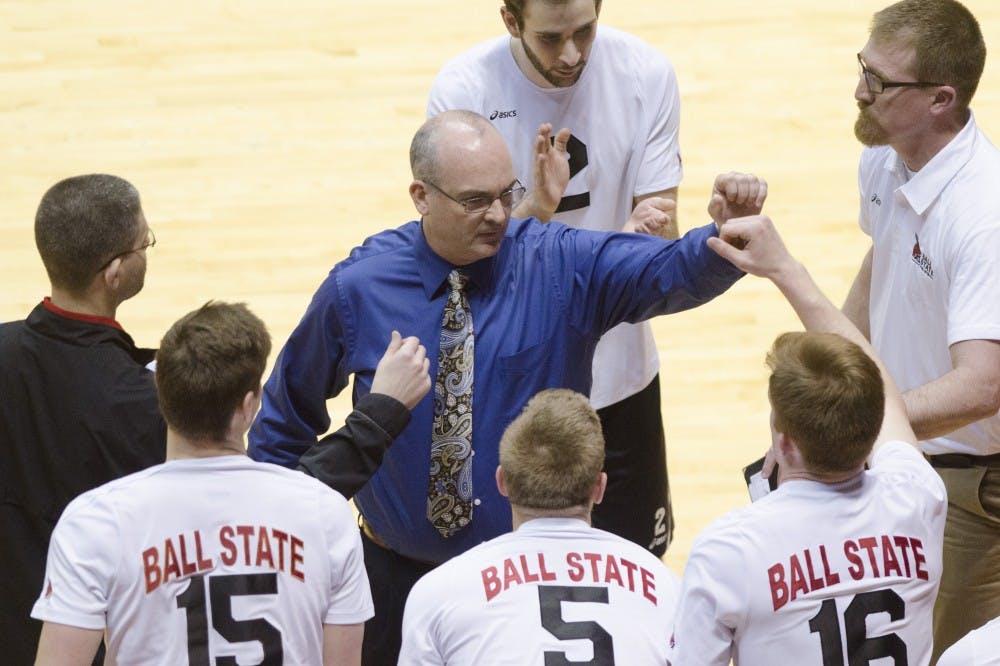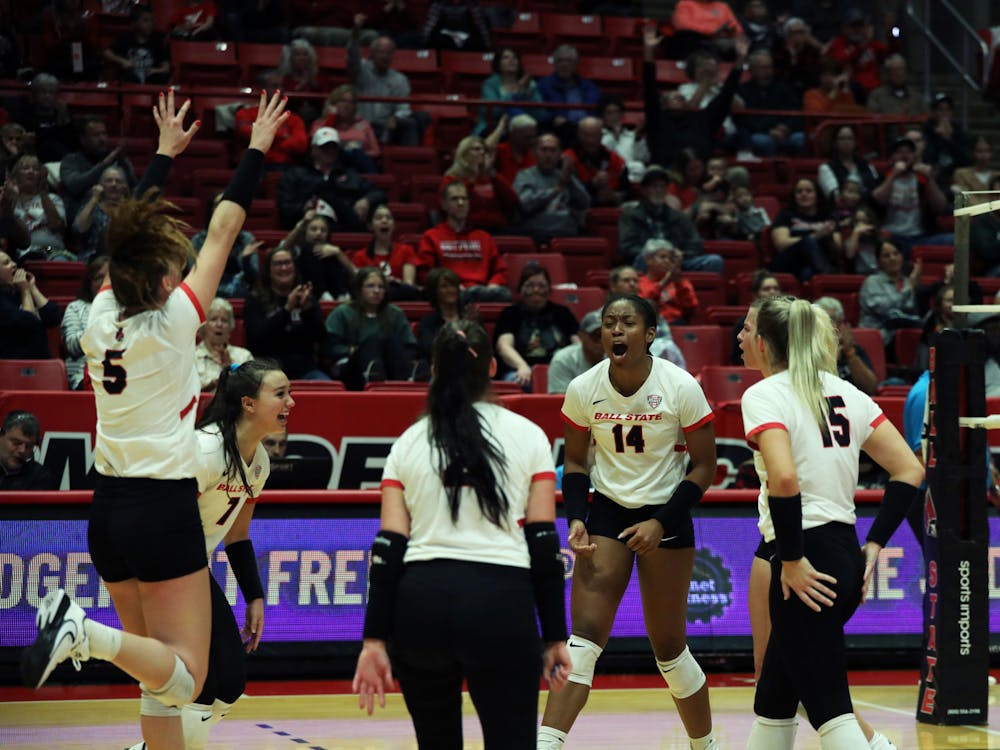Joel Walton gave up higher pay and a company car to fill a job opening as the assistant men's volleyball coach at Ball State University in 1990. While he was the head coach in the 2004-05 season, it began to look as if he made the wrong decision.
The Ball State athletics department had tough decisions to make. Funds were tight, and several programs were on the brink of being eliminated — one option being men’s volleyball.
Walton was unsure if the historic program would remain or if he'd be without a job.
“Within the department, I was a dead man walking,” Walton said. “I would go down the hall and I would see our administrators duck into an office so they wouldn’t have to walk by me and say hello or say anything. It was like [I was] walking around and there was this black cloud walking around me.”
Sticking with the sport
If Walton wanted to play volleyball growing up, his only choice was to practice with the girls’ team.
His father owned the Lincoln Volleyball Club, which had both men's and women's adult teams, but only one junior team for girls. Volleyball was rare for a boy to play during the time Walton grew up, so playing made him stand out more than he would have hoped.
“I was very often accused of being gay because people didn’t know how to understand this boy who was playing a girl's sport,” Walton said. “In middle school, the kids were ruthless. It just made me a little bit different that I was doing something that people didn’t understand as much.”
Walton practiced and played with the girls until he was old enough to play with the men's team.
Prior to Walton’s senior year of high school, his father had the opportunity to work in Indianapolis. Their home was just 45 minutes away from one of the top men's volleyball programs in the country — Ball State University.
Knowing his son planned to continue volleyball at the collegiate level, the family made the move.
During his career, Walton racked up a number of honors in a Cardinal uniform. He ranked third in digs-per-game average (2.20) and eighth in career digs (710). He also helped lead Ball State to two league and two NCAA tournament appearances.
Walton didn't have much free time in college, but he was doing something he enjoyed.
“I didn’t have time to be a part of a fraternity, but, essentially, I was — [it was] called the Ball State men’s volleyball program,” Walton said.
With the little free time he did have, Walton met his future wife, Jennifer, on campus.
Following graduation, he vowed to take a year away from volleyball to focus on his marriage. Walton moved back to Indianapolis, struggling to keep the sport out of his life.
After brief stints bagging groceries and selling men’s apparel, Walton landed a job with Nabisco in sales.
That's when he heard of the job opening at Ball State as assistant men's volleyball coach. This left him with some decisions to make.
His wife wanted him to separate from the game because of the amount of time he spent traveling. There were times in college Jennifer didn't see Walton for about seven weekends from January to May as he traveled to play.
“Jenny is a very intelligent person. She knew through dating me while I played volleyball for a year and a half [in college] what that schedule was like,” Walton said. “So she didn’t immediately say yes [to the job].”
After discussions with his wife, they decided he should take the job.
"We talked about it, we fought about it, she cried, I cried," Walton said. "And finally she said, 'OK, we’ll try this.'"
In the end, they decided to stick with what they love — which carries on to this day. For Walton, it's volleyball. And for Jennifer, it's teaching language arts at Selma Middle School in Muncie.
“I left a nationally recognized company, but I left a job where I was out on a sales territory, before cell phones, and I was alone most of the day," Walton said. "I left a job where I wasn’t doing anything with volleyball, and volleyball up until two years prior had been a huge part of my life.”
Coaching Career
Walton began his career as a Ball State coach in 1990. He served under men's volleyball legend Don Shondell as an assistant for eight years.
Following Shondell's retirement, Walton became head coach in 1998. The program picked up right where it left off, and Ball State continued to move forward.
During his first few seasons, Walton won the 2001 Midwestern Intercollegiate Volleyball Association Coach of the Year and followed that up with the 2002 MIVA regular season and tournament titles. In 2003, he coached the Cardinals to a No. 6 overall ranking in the USA Today Coaches Poll.
Despite the program's success, the program began to take a turn in 2004-05.
Funding was in question, and as he walked down the hallways of his fellow coaches, he was at an all-time low.
“At a time where I was as low as I could be, I envisioned this program that I had played in, that I had coached in, going away," Walton said. "It was just a horrible, horrible time.”
That's when the Muncie community came together to support the program they had become so accustomed to.
Since the program's creation 52 years ago, Ball State has been a front-runner in NCAA men's volleyball. Coaches, players and alumni alike were not ready to let it go.
“That’s this community and what this community means to us," Walton said, fighting back tears. "And being a part of this community is something that I really cherish."
The Ball State men's volleyball program has had only two head coaches since the program's inception. Behind the tight-knit nature of the players, coaches and community, Ball State was able to keep the program at the cost of only a few scholarships.
“The fact that we’ve had the continuity of success with that few amount of coaches is pretty remarkable,” senior outside attacker Jack Lesure said. “They must be doing something right.”
It's more than just a job for Walton, who sacrificed it all to get back into the sport he loves. Even through the toughest times, he's helped lead the program into what it is today.
“It’s a program that means the world to me,” Walton said.





